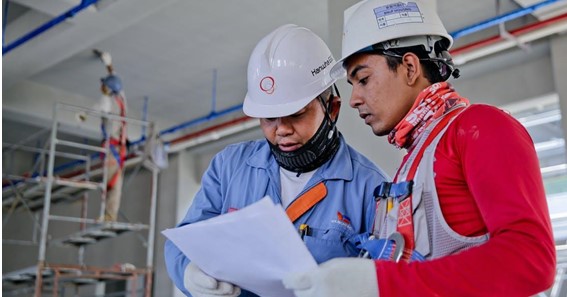A contractor license bond is also known as a construction bond. It’s a requirement for any construction project, including almost all government and public works projects. The bond makes a contractor responsible for adhering to license law as well as the terms stated in the construction agreement. When the contractor fails to perform their duties according to the terms of the agreement, both the contractor and surety are liable.
There are special criteria you need to meet for state requirements for contractor bonding. Not only does a California contractor bond have a specific coverage amount, but depending on your license status, you may need an additional type of bond with its own coverage amount. This is an overview of the contractor bonding requirements for the state of California for each type of bond.
click here – BCAA Full Form & Meaning
California Contractor License Requirements
California law requires that any individual or business advertising as being licensed or being contracted for construction work exceeding $500 for the total value of labor and materials must have a contractor’s license. People who are exempted from this requirement are employees of a business, are paid wages, and are under the direction of an employer or supervisor. Owner-builders who do their own work on their property or pay wages to employees to work on their property are also exempt.
Contractors must obtain their license from the California Contractors State License Board (CSLB). Although there are examination, certification, registration, reporting, and safety requirements, it is possible to get a waiver for the examination. At least four years of journeyman experience within the last 10 years for general construction or a specific field is a prerequisite for the examination.
Without experience, an individual can partner with an RMO (Responsible Managing Officer) or RME (Responsible Managing Employer), get a waiver for the examination, or create a company with a licensed contractor. Even so, California contractor bonding requirements still apply for the individual or business contractor.
Types of California Contractor Bonds and Requirements
Depending on your role in the construction project, you are required to have some type of contractor bond:
click here – Benefits Of Natural Laundry Detergent
California Contractor License Bond
A California Contractor License surety bond is for $15,000 and costs between $102 and $450 per year. Credit score, experience, and other factors determine the cost. This is also known as a payment bond, and it’s required for all California contractors. If you don’t perform according to the construction agreement, the bond allows the client to put a claim on it to cover damages. This type of license bond for California contractors ensures eligibility for licensure as well as reactivating an inactive license or renewing a license.
Other than that it must be in the amount of $15,000, the requirements are:
- It must be underwritten by a surety company licensed through the California Department of Insurance.
- The business name and license number must match those on the CSLB’s records.
- It must have the signature of the surety company’s attorney.
- It must be written on an Attorney General-approved form.
- The CSLB’s Headquarters Office must receive it within 90 days of the effective date of the bond.
Qualifying Individual Bond
A Qualifying Individual Bond is an RME bond in the amount of $12,500 for individuals who own less than 10 percent of a business entity.
The same requirements as the California Contractor Bond apply, except that it must be in the amount of $12,500.
Disciplinary Bond
A Disciplinary Bond is an additional surety bond for contractors who have suspended licenses. It has a limit between $15,000 and $150,000.
Requirements:
- It must be filed only as an additional bond; it cannot replace nor be coupled with any other bond(s).
- It must have a bond amount determined by the Registrar and the amount is based on how serious the violations are, but it may not be less than $15,000 nor more than ten times the contractor’s bond amount.
- It must stay current and on file with the Registrar for two years minimum, although a longer filing period may be required.
- While it is on file, the company’s license must stay active and up-to-date.
- The same basic requirements from the California Contractor License Bond.
The two other main types of contractor bonds are bid and performance bonds. They are not state-dependent but are typically required by the government for public projects.
Any other type of bond may be required for the construction project, such as:
- Maintenance bond: A maintenance bond is also known as a warranty bond, protects the owner against defects and faults in materials, workmanship, and design for inadequate or incorrect work.
- Supply bond: This surety bond guarantees that the supplier (principal) will provide the necessary specific supplies or materials by a certain date according to the contract.
- Subdivision bond: A type of construction bond that serves as a guarantee that the developer will complete public improvements following the quality level, applicable regulations, and within the stated timeframe according to the contract.
- Site improvement bond: A surety bond for renovations or improvements on an existing site or structure that guarantees the work will be completed according to the contract.
- LLC employee/worker bond: A surety bond for LLCs in the amount of $100,00 and liability insurance with a limit between $1,000,000 and $5,000,000.

